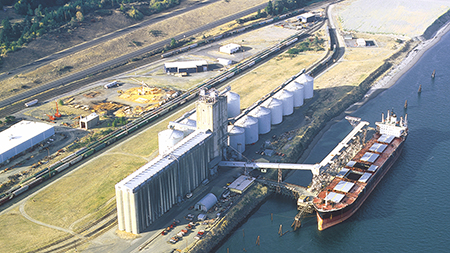America’s ongoing trade battles recently took a couple of new turns. On Monday, August 27, President Trump announced his administration had reached an agreement with Mexico to renegotiate the two countries’ portions of the North American Free Trade Agreement (NAFTA). Later the same day, the U.S. Department of Agriculture announced details of new programs designed to alleviate harm caused to American farmers by foreign nations’ unfair trade practices.
Given the challenges Missouri farmers have faced this year with already-low commodity prices, additional price drops due to trade disputes and an exceptional drought, these announcements were welcome news. Mexico is the third-largest export market for American agricultural products, and all of the preliminary news about the NAFTA renegotiation has been positive for farmers.
The new “United States-Mexico Trade Agreement” would keep trade tariff-free for Missouri’s most important exports to Mexico, including soybeans, corn, beef, pork, dairy, rice and wheat. Since NAFTA’s original implementation in 1993, U.S. corn exports to Mexico grew from $35 million per year to nearly $3 billion in 2016. Overall U.S. agricultural exports grew 305 percent in the same period, showing that free trade with Mexico has been extremely important to farm country.
The other welcome news comes from the trade assistance package announced by USDA. The program will provide about $6.3 billion of aid in this initial round, roughly half of the $12 billion originally announced. USDA Secretary Sonny Perdue said his team will continue to monitor market conditions over the coming months and release the other half of payments “in the coming months if warranted.”
The bulk of this aid will come through direct financial assistance to farmers, based on the amount of each commodity they produced in 2018. Over 75 percent of this direct aid will be paid to soybean producers, based on a rate of $1.65 per bushel.
Not everything was good news, however. With payments based exclusively on 2018 yields, many Missouri farmers suffering through a severe drought may see no aid at all, as their yields will be at or near zero. Missouri Farm Bureau has strongly advocated that drought areas be allowed to use historical production numbers. Since many farmers store and sell their crops over two to three years, the 2018 price declines affect far more than the crop currently in the ground. So far USDA has not made any allowances for drought-affected areas, but Missouri’s Congressional delegation and MOFB continue to advocate for changes.
The trade situation remains fluid and unpredictable. With harvest time already here for many parts of our state, farmers hopefully will continue to get more good news to put them in a stronger position for next season.


